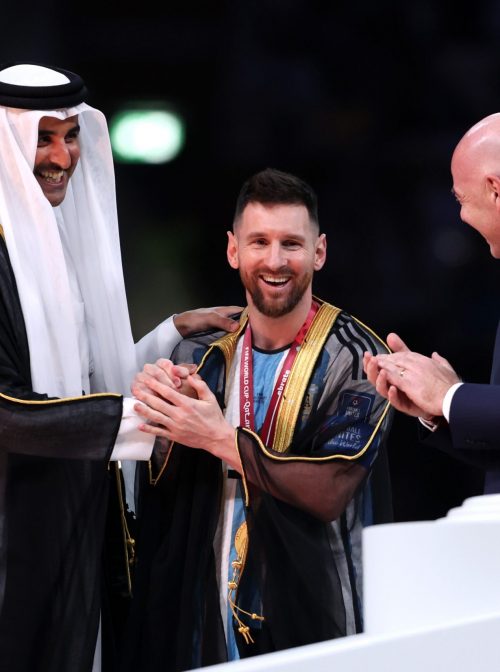At the historic Argentina versus France final of the FIFA World Cup Qatar 2022, sheer persistence and sportsmanship was undoubtedly on display.
But what was also on display at the event’s climax was faith and culture. Lionel Messi lifted the trophy wearing a bisht, a black robe popular in Arab culture. And later, while talking to the media, he credited his victory to God.
“I knew God would bring this gift to me,” Messi, a practicing Catholic, said. “I thank God for giving me everything.”
Diversity of religion, beliefs and culture has manifested itself in many ways throughout the month-long tournament that was hosted for the first time by a Muslim and an Arab country.
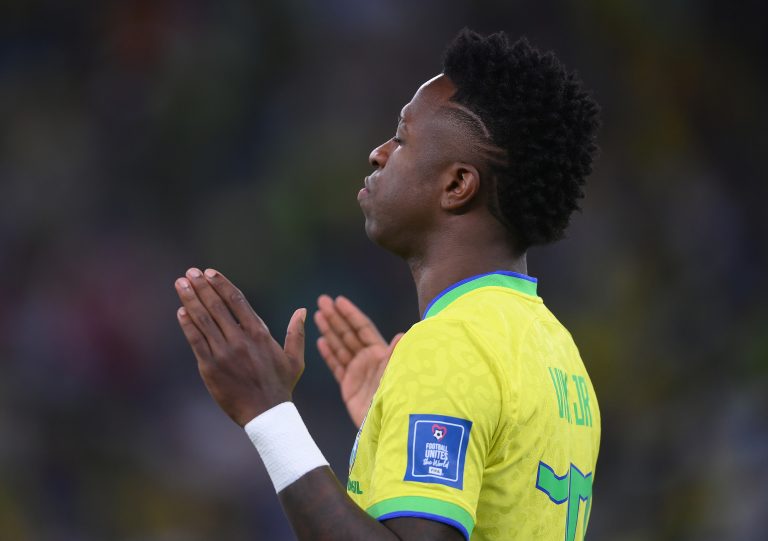
In fact, the very onset of the tournament — the opening ceremony held on Nov. 20 — made it evident that Qatar wanted the world to understand Islam with the aim of encouraging an interfaith understanding of it.
“The world seems so distant and divided. How can so many countries, languages and cultures come together if only one way is accepted?” actor Morgan Freeman asked while performing during the opening ceremony.
Ghanim Al-Muftah, a young Qatari, responded with a Quranic verse: “O humanity! Indeed, We created you from a male and a female, and made you into peoples and tribes so that you may get to know one another. Surely the most noble of you in the sight of Allah is the most righteous among you.” (Quran, 49:13)
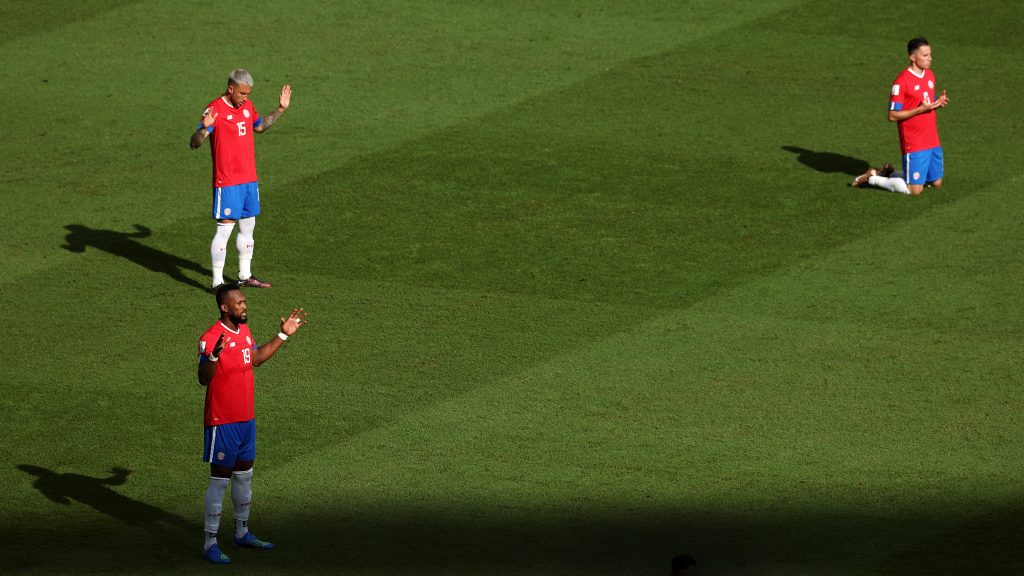
While Freeman’s participation disappointed some of his fans concerned by Qatar’s treatment of migrant workers and its restrictions on the LGBTQ community, the ceremony, at least for the host nation, was an invitation to the world to come to Qatar with an open-mind and learn not just about the country itself, but also about its culture, religion and the Muslim world at large.
During the matches, the fans witnessed several instances of religious expression on the field, particularly from the national team of Morocco, which became the only Arab and Muslim team to reach the semi-finals. The Moroccan squad recited the first chapter of the Quran before their penalty shootout with Spain, and after clutching its victory, ran to their fans and prostrated themselves in prayers of gratitude. Such iconic moments, rarely seen in this global sport, were cherished across the Muslim world with pride and joy.
However, a proud display of one’s faith wasn’t limited only to the field. Just a short drive away from the largest tournament venue Lusail Stadium, the Katara Mosque has been welcoming hundreds of non-Muslim visitors daily to learn about Islam and increase their interfaith knowledge.
Located in the heart of the buzzing Katara cultural village in Doha, the mosque displays signs inviting visitors to take tours of the mosque, ask their staff and volunteers any questions about Islam or the Arab world, or attend one of their multilingual group sessions on religion.
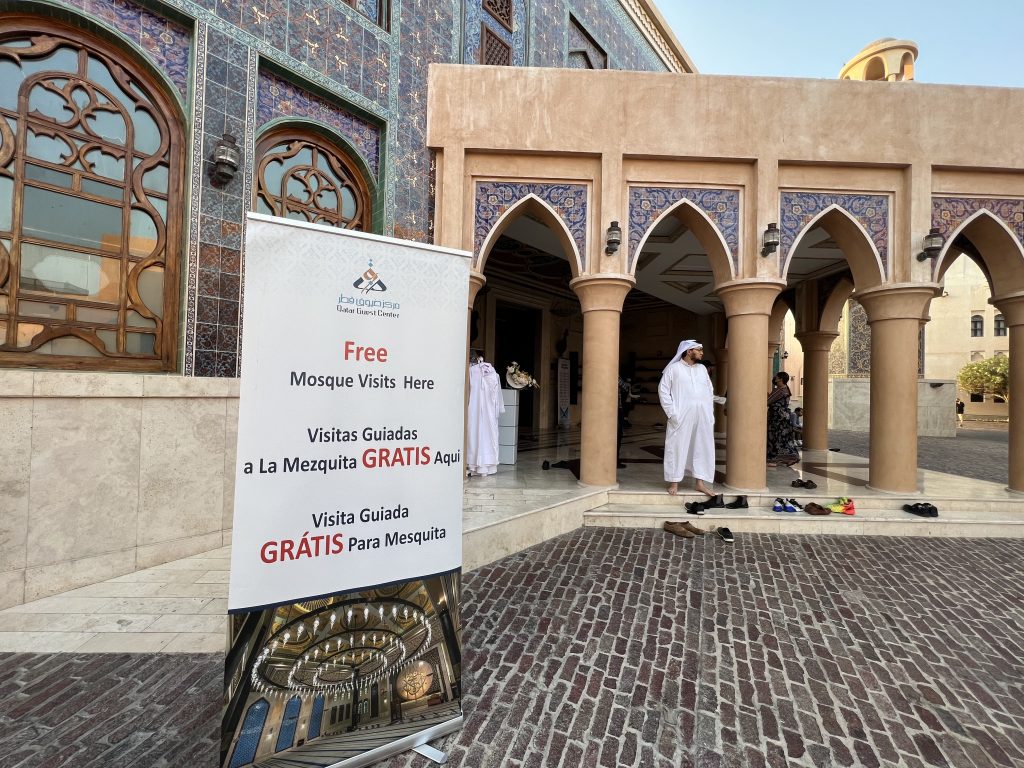
Jahed Ahmed, one of the organizers of the initiative, repeated the Quranic verse from the World Cup opening ceremony when asked why the mosque was organizing such activities.
“We live in a globalized world. So, it’s very important that we understand each other. The Quran also tells us that God had made us into different tribes and nations so that we know one another,” said Ahmed, who originally hails from the United Kingdom and came to Qatar to help with the mosque’s outreach efforts.
“Different tribes and nations might have different religions, different cultural behaviors. And we live in this world together. So, we have to learn to live together, but also to learn differences and to respect such differences and understand them,” Ahmed added.
Throughout the day, visitors passing through the mosque courtyard could pick up leaflets on a range of topics in their preferred language or scan one of the dozens of QR codes displayed outside the mosque to listen to the Quran in their own language.
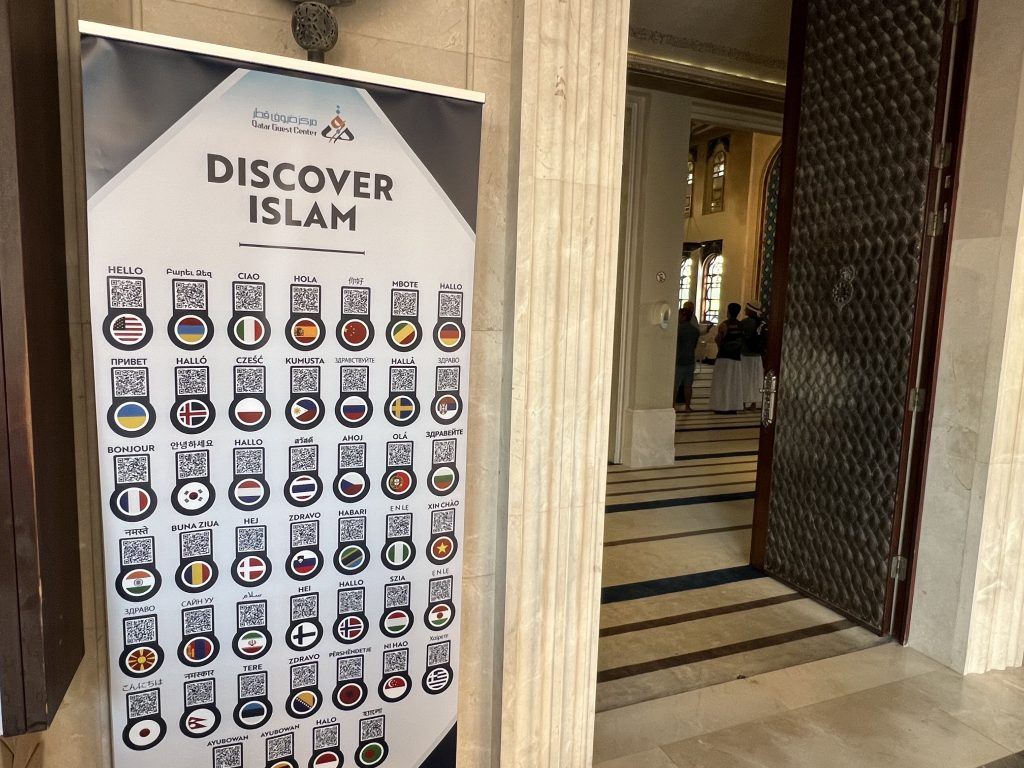
“I knew nothing about Islam before coming to Qatar, so it was great learning about another religion,” said Sabastean High, a Catholic football fan from Argentina who took part in the mosque’s activities.
Angelo Caputi, another Catholic fan from Ecuador who learned about Islam at the mosque with his family, said he learned that the oneness of God is the same in Islam as it is in Catholicism.
“Everyone has one God, so I think it’s important to understand other religions because it helps you understand other people,” Caputi added.
Besides the Katara Mosque, similar educational booths about Islam and the Arab world have also been set up at other locations in Qatar. In the Pearl-Qatar, an island popular among expats and foreign visitors, murals display the Prophet Muhammad’s sayings on tolerance, mercy, and good deeds.
“The initiative is breaking down barriers and encouraging learning and understanding,” Ahmed said. “Islam is an inherent part of the Qatari culture. So, we are introducing both Qatari and Arabic and Muslim culture to all those guests coming from all over the world.”
“It’s very important for people to know about Islam and talk about the similarities and differences that we share in our faiths. Even if we agree to disagree, that should not stop us from communicating with each other.”
Shakeeb Asrar is a multimedia journalist and documentary filmmaker. He was previously with Al Jazeera English in Doha, Qatar and USA Today in Washington, D.C, and has also received reporting grants from the Pulitzer Center and South Asian Journalists Association (SAJA). Shakeeb holds a bachelor’s degree in journalism from Northwestern University and master’s in documentary filmmaking from Columbia University. He is passionate about covering stories from the global South, with a focus on human rights, migration, and social justice. Follow Shakeeb @shakeebasrar on Instagram and Twitter.
